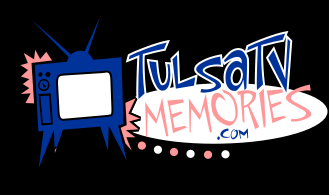
Bagsby is currently re-releasing those early albums on CD on his own Esotericity Music label. His current catalogue includes the groundbreaking experimental works The Aviary, Ephemeron, and Translator, where he takes field recordings and, using a computer, reassigns each sound with a musical voice. Bagsby has also released his progressive rock works Xen (with Kurt Rongey), Transphoria (on Mellow Records), and Master of Night, plus his Raymond Scott tribute Happy Hour for a Pack of Screaming Monkeys. He has also remastered his tributes (and massive in-jokes) to Tulsa he recorded with his brother Steve Bagsby, The Tulsa Project and Jethro Tulsa.
David's musical interest began when his neighbor's house exploded. "Of course, they decided to move after that," Bagsby said, "and when they left they gave a lot of stuff away. We ended up getting a couple of guitars and some ukuleles. I didn't mess around with it that much, but my brother started playing and he started getting good. Then I thought I better get on the ball. So guitar was the first instrument that I actually sat down and tried to work out." Despite learning the guitar, acoustic instruments did not make the noises Bagsby was trying to find. "When I was growing up, in the mid to late sixties, everything was multi-tracked with backward tapes, but I didn't know that. I would go 'What's this? That's the instrument I want to play.' And it would be some multi-tracked thing by The Beatles, like on 'Tomorrow Never Knows.'
"I haven't composed the massive conglomerations of sound I was hearing before I started playing. The closest thing I can relate it to is The Wonderful World of Color, the Disney show. At the end of the opening credits, when Tinkerbell comes out and touches her wand on the screen there are these three big color washes. I used to think 'God, what would that sound like.' But to do that, you have to be really focused. But what happens is you come up with part of the sound, like here's the bass part, or here's the drum part, then you start trying to conceptualize it and get it down on paper. Every time, you end up making a mistake that is cooler than what you thought of originally. Then nature sides with the flaw and it mutates into something totally different. So technically, almost everything I do is a failed experiment." Bagsby also noted that he is interested in too many forms of music. "What I want to do is a lot more encompassing than just writing rags, or blues, or whatever. There are a lot of things that fascinate me that I will probably never have time to get to. Right now I'm getting software to use perfect tuning systems, completely throwing out the concept of music, for the most part. It's like having 20 notes between C and C-sharp. Then it's where do you stop? The sky is the limit. It gets maddening."
Bagsby is very proud of his Raymond Scott tribute,
which is a wonderful interpretation of the composer's classics. "I heard
that music my whole life, watching cartoons, and then one day my brother
taped Dr. Demento and they played 'Powerhouse.' I freak out. 'This finally
has a name!' Of course the problem was that this was like 1977.
Bagsby is still composing and working with new technology for new sounds. He is toying with the idea of making a companion volume to the Scott tribute that will delve into the composer's experimental electronics period. Having grown up in the same area, with the same influences as Bagsby. I feel like David is a Nationalist composer for Oklahoma. He creates a tightly woven schizophrenic blend of experimental art and pop culture that developed in isolation out here in the plains. The images of Caruso visiting the oilfields, Bob Wills playing Hawaiian music in the shadows of our gothic, art deco, cityscape, Gary Busey hot rodding across town on Route 66, and Oral Roberts having visions of a 900 foot Jesus, are all summed up in Bagsby's compositions. Like his amazing CDs, sometimes it's hard to believe it really happened, but it is awe-inspiring when you actually catch a glimpse and see that it deadly serious with a strange comic bent at the same time.
Back to David Bagsby's main body of work Back to Channel Changer 2 Back to main
|